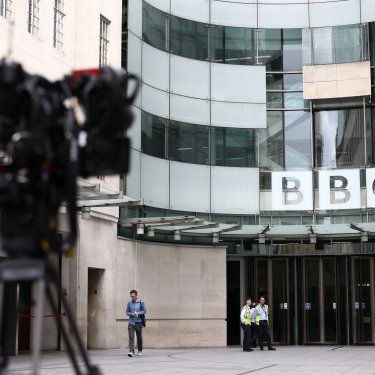Syria withdraws accreditation from two local journalists working for BBC

Reporters Without Borders (RSF) condemns the Syrian information ministry’s decision to revoke the accreditation of two local journalists working for the BBC in reaction to a report about drug trafficking in Syria that the British public broadcaster released late last month.
Announcing its decision on 8 July to withdraw the accreditation of reporter Assaf Abboud and cameraman Wissam Abdou, the information ministry accused the BBC of producing “politicised reporting that misleads public opinion.” The ministry also accused the BBC of deliberately providing “false and subjective news and reports” about Syria ever since the start of what it called “the terrorist war against Syria” in 2011.
“In the name of combatting this ‘terrorist war,’ Bashar al-Assad's government has repeatedly imprisoned and killed journalists or made them disappear to prevent them from reporting independently and transparently. Twelve years after the start of the Syrian revolution, the withdrawal of the BBC crew’s accreditation is yet another reminder of the degree to which press freedom terrifies the president. We condemn the threat to journalists contained in this decision and we call for the resumption of BBC reporting in Syria.”
Released on 29 June, the offending report was produced jointly by the BBC World Service and investigative reporters with the Organised Crime and Corruption Reporting Project (OCCRP). It alleged that the Syrian military and Bashar al-Assad's family were involved in trafficking illegal amphetamines known as captagon. Although the BBC’s two local journalists were not identified as having played any role in the report, the withdrawal for their press accreditation was clearly a reprisal.
Despite the evidence provided in the BBC report, entitled “Captagon: Inside Syria's drug trafficking empire,” the government has denied any involvement in captagon trafficking and has accused the BBC of a “pro-terrorist bias.” Ever since it was released, government supporters have been reacting angrily on social media and have been calling for Abboud’s resignation.
After its journalists’ accreditation was rescinded, the BBC said in a statement that its Arabic news service provided “impartial and independent reporting by speaking to people across the political spectrum” and that it would continue to report the news in this way.
The Syrian authorities often accuse journalists of spreading fake news and participating in a conspiracy against the country. When, during an interview in 2017, Yahoo News chief investigative correspondent Michael Isikoff showed President Assad photos of detainees who had died in Syrian prisons, Assad responded with talk of “propaganda” and “fake news, and accused people of wanting to “demonise the Syrian government.”
With 27 journalists currently jailed, ten missing, three killed in 2022 and hundreds living in exile, Syria is regarded as one of the world’s most dangerous countries for media personnel. It is virtually impossible for independent reporters to work in government-controlled areas
Syria is ranked 175th out of 180 countries in RSF's 2023 World Press Freedom Index.
